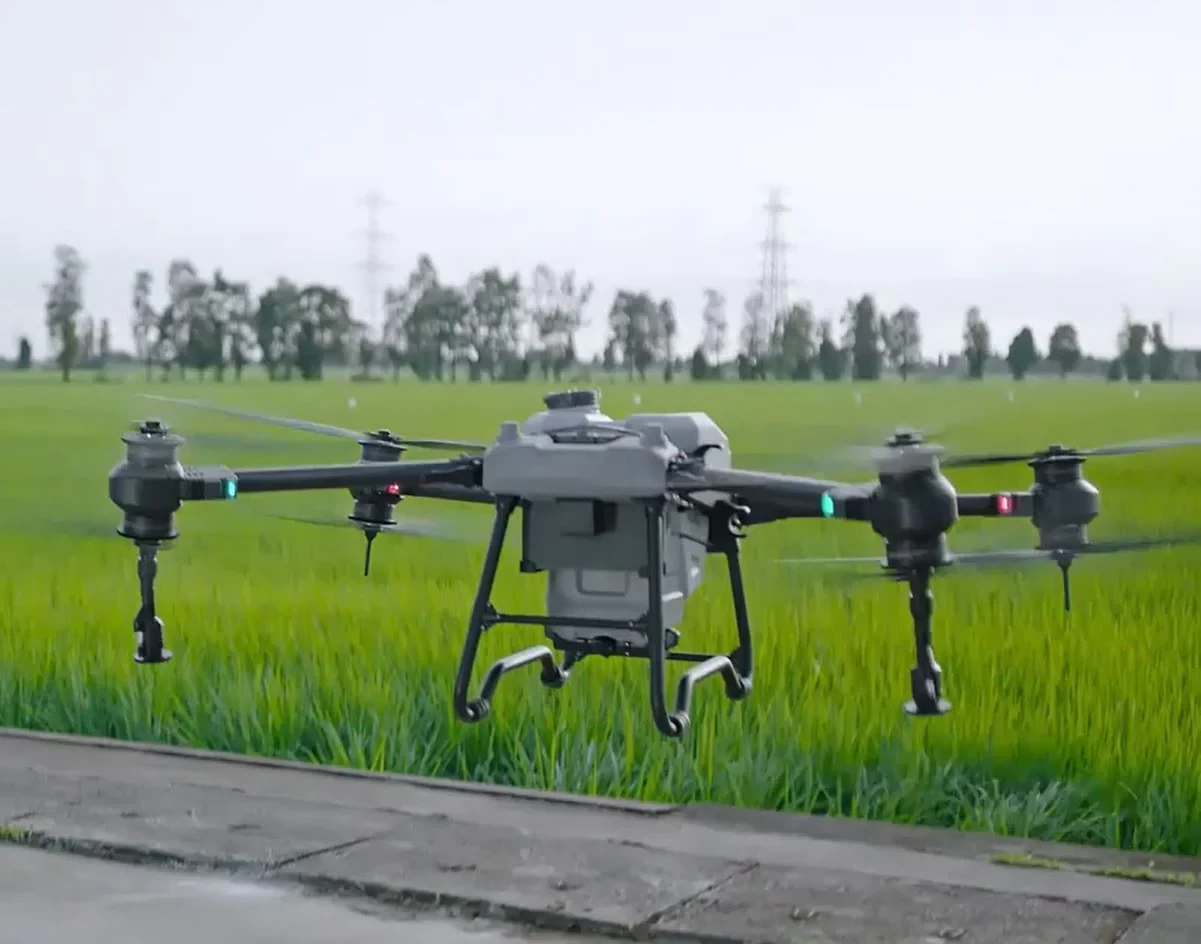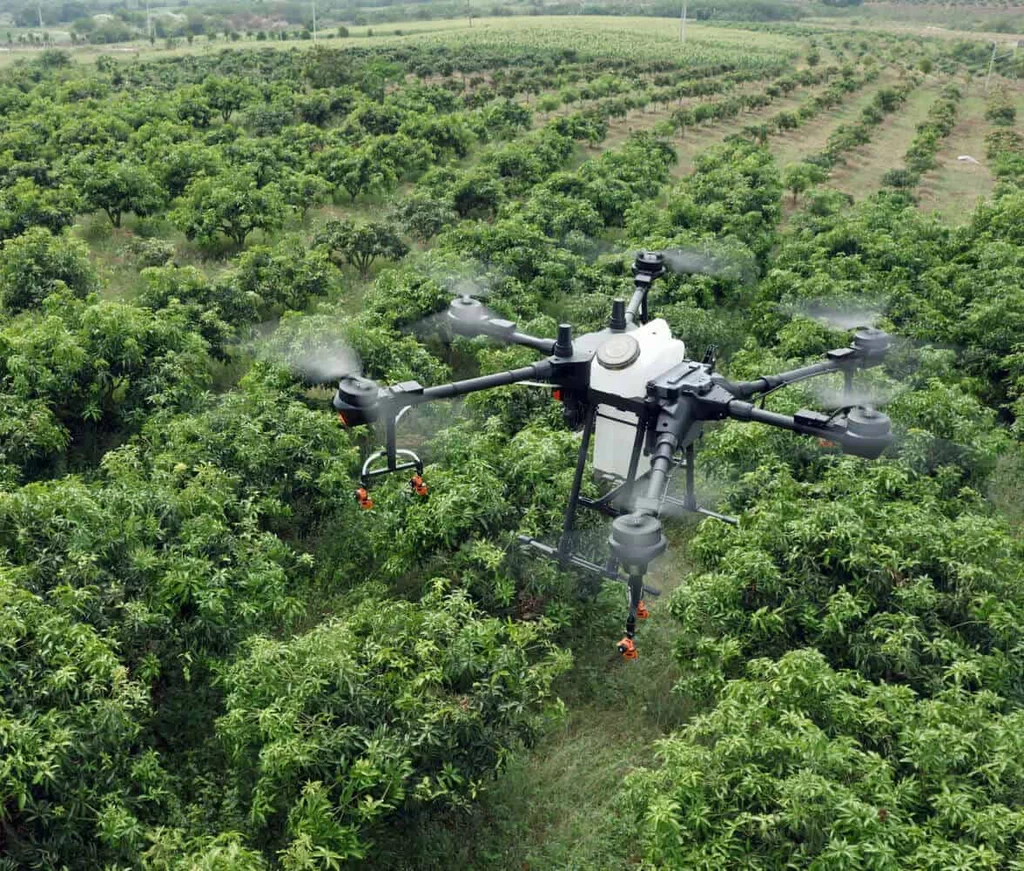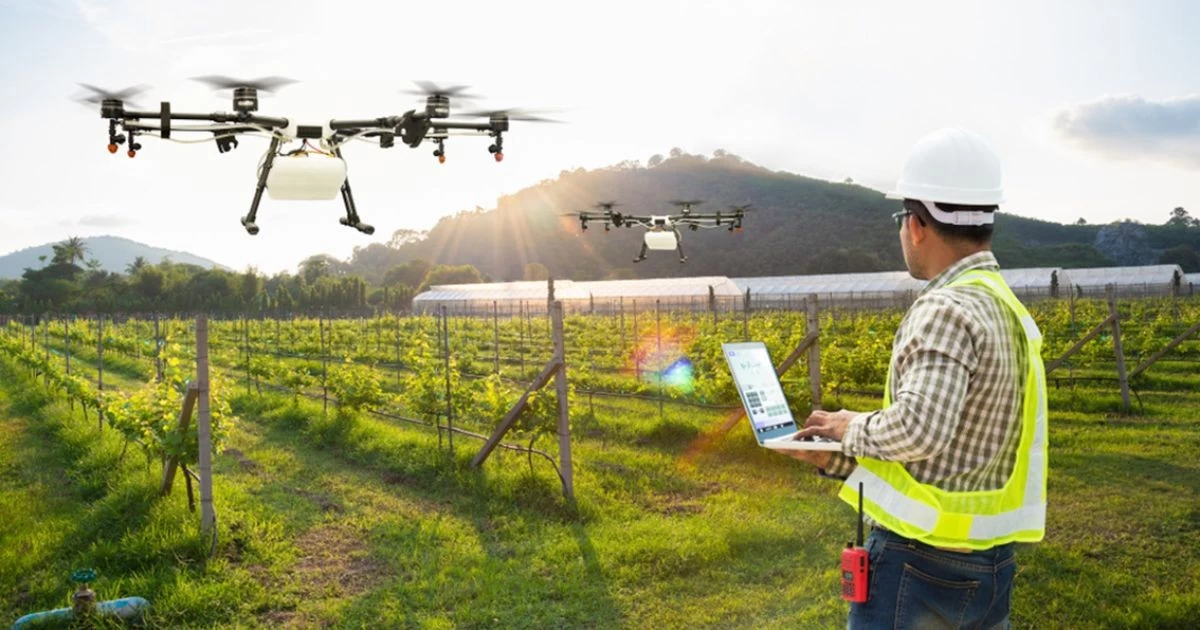-
So wählen Sie zuverlässige Lieferanten für Smartphone-Großkäufe aus
Auf dem hart umkämpften Smartphone-Großhandelsmarkt kann die Wahl des richtigen Lieferanten über Erfolg oder Misserfolg Ihres Geschäfts entscheiden. Zuverlässige Lieferanten stellen nicht nur die Qualität und Authentizität Ihrer Produkte sicher, sondern optimieren auch Ihre Abläufe und tragen dazu bei, Vertrauen bei Ihren Kunden aufzubauen. Hier erfahren Sie, wie Sie zuverlässige Lieferanten identifizieren und auswählen, um Ihren Erfolg im Massenhandel mit Smartphones zu sichern.
Bevor Sie eine Partnerschaft eingehen, informieren Sie sich gründlich über den Hintergrund des Lieferanten. Überprüfen Sie, ob es Unternehmensregistrierungen, Zertifizierungen und Kundenbewertungen gibt. Zuverlässige Lieferanten sind transparent und bereit, ihre Legitimität nachzuweisen. Plattformen wie B2B-Verzeichnisse und Handelsverbände können ebenfalls bei der Überprüfung eines Lieferanten helfen s Glaubwürdigkeit.
Angesichts der Zunahme gefälschter und generalüberholter Waren ist es von größter Bedeutung, sicherzustellen, dass Ihr Lieferant nur mit brandneuen und originalen Smartphones handelt. Fordern Sie Produktzertifizierungen oder Echtheitsnachweise an, beispielsweise Herstellerrechnungen. Dies ist besonders wichtig, wenn Sie mit stark nachgefragten Marken wie Apple, Samsung und Xiaomi arbeiten.
Bei der Auswahl eines zuverlässigen Lieferanten für den Großeinkauf von Smartphones geht es nicht nur darum, die besten Angebote zu erhalten; Es geht darum, eine Grundlage für Vertrauen und Qualität zu schaffen. Durch die Befolgung dieser Strategien können Sie Risiken minimieren, Ihre Abläufe optimieren und ein nachhaltiges Geschäft im wettbewerbsintensiven Smartphone-Markt aufbauen.
Ein vertrauenswürdiger Lieferant pflegt eine offene und effiziente Kommunikation. Bewerten Sie ihre Reaktionszeit, ihre Bereitschaft, detaillierte Informationen bereitzustellen und wie sie mit Anfragen umgehen. Gute Lieferanten bieten auch After-Sales-Support an, der für die Lösung von Problemen im Zusammenhang mit Garantieansprüchen oder defekten Geräten von entscheidender Bedeutung ist.
Obwohl wettbewerbsfähige Preise unerlässlich sind, sollten Sie bei Angeboten vorsichtig sein, die zu gut erscheinen, um wahr zu sein. Zuverlässige Lieferanten bieten klare Preisstrukturen ohne versteckte Kosten. Sie informieren Sie im Voraus über Rabatte bei Großeinkäufen, Zahlungsbedingungen und Versandkosten, sodass Sie Ihr Budget effektiv planen können.
Pünktliche Lieferungen sind im Großhandel von entscheidender Bedeutung. Bewerten Sie die Logistikfähigkeiten des Lieferanten, einschließlich Versandzeitpläne, Verpackungsqualität und Nachverfolgungssysteme. Ein Lieferant, der häufig Bestellungen verzögert oder minderwertige Verpackungen liefert, kann sich negativ auf Ihren Betrieb auswirken.
Nutzen Sie digitale Tools und Plattformen, um Lieferanten zu recherchieren und zu vergleichen. Online-Rezensionen, Bewertungen und Testimonials liefern wertvolle Einblicke in den Ruf eines Lieferanten. Auch Plattformen, die sichere Zahlungsmethoden und Streitbeilegung anbieten, können Ihre Transaktionen schützen.
Das Anfordern von Produktmustern gehört zur Standardpraxis bei der Lieferantenbewertung. Überprüfen Sie diese Muster, um sicherzustellen, dass sie Ihren Qualitätsstandards entsprechen und mit den Markttrends übereinstimmen. Dieser Schritt hilft, unangenehme Überraschungen zu vermeiden, wenn Großbestellungen eintreffen.
Der Aufbau einer langfristigen Beziehung mit einem Lieferanten sorgt für Stabilität und gegenseitiges Wachstum. Lieferanten, die Wert auf langfristige Partnerschaften legen, bieten eher konsistenten Service, Treuerabatte und bevorzugten Zugang zu neuen Produkten.
3. Bewerten Sie Kommunikation und Support
8. Technologie für die Forschung nutzen
2. Priorisieren Sie die Produktauthentizität
4. Analysieren Sie die Preistransparenz
1. Überprüfen Sie die Anmeldeinformationen des Lieferanten
6. Prüfen Sie die Liefermöglichkeiten
7. Suchen Sie nach langfristigen Partnerschaften
5. Produktproben prüfen
Eine Grundlage für Wachstum
-
Erkundung des Aufstiegs der Satellitenkonnektivität in Smartphones
Herkömmliche Mobilfunknetze versagen trotz ihrer globalen Reichweite häufig an abgelegenen Orten wie Bergen, Ozeanen oder ländlichen Regionen. Die Satellitenkonnektivität schließt diese Lücke und ermöglicht es Smartphones, eine direkte Verbindung zu Satelliten im erdnahen Orbit (LEO) herzustellen. Dieser Fortschritt gewährleistet eine unterbrechungsfreie Kommunikation bei Notfällen, Naturkatastrophen oder Outdoor-Abenteuern, bei denen Standardnetzwerke nicht ausreichen.
Da die Smartphone-Branche weiterhin Innovationen hervorbringt, stellt die Satellitenkonnektivität einen bedeutenden Fortschritt bei der Überbrückung der digitalen Kluft dar. Durch die Kombination traditioneller Mobilfunknetze mit Satellitenfunktionen können sich Benutzer weltweit auf eine beispiellose Zuverlässigkeit und Reichweite ihrer Kommunikation freuen.
Im Jahr 2025 betritt die Smartphone-Branche mit der Integration der Satellitenkonnektivität Neuland. Diese Technologie ist bereit, die Kommunikation neu zu definieren, indem sie eine Abdeckung in abgelegenen und unterversorgten Gebieten bietet und die Art und Weise verändert, wie Benutzer mit ihren Geräten und der Welt um sie herum interagieren.
Es wird jedoch erwartet, dass Fortschritte in der Technologie und der Wettbewerb zwischen Satellitenanbietern diese Probleme lösen und die Satellitenkonnektivität bis zum Ende des Jahrzehnts zugänglicher machen.
ist ebenfalls in die Arena eingestiegen und hat Chips bereitgestellt, die Satellitenkonnektivität für eine umfassendere Smartphone-Integration ermöglichen.
Branchen wie Logistik, Bergbau und Luftfahrt profitieren von nahtloser Konnektivität bei Remote-Operationen.
Die Integration von Satellitenkomponenten erfordert Innovation, um schlanke, leichte Smartphone-Designs beizubehalten.
Die Hardware- und Abonnementgebühren für Satellitendienste sind höher als bei herkömmlichen Mobilfunknetzen.
Die Harmonisierung von Satelliten- und terrestrischen Netzen ist komplex, aber für nahtlose Übergänge unerlässlich.
hat in seinen jüngsten iPhone-Modellen Notfall-SOS über Satellit eingeführt und damit einen Maßstab gesetzt.
Im Notfall gewährleisten Satellitenverbindungen den Zugang zu Hilfe, auch in netzfernen Gebieten.
folgte diesem Beispiel und bot in seinen Flaggschiffgeräten satellitengestütztes Messaging an.
Die Einführung der Satellitenkonnektivität ist nicht ohne Herausforderungen:
Reisende und Entdecker können überall auf der Welt in Verbindung bleiben.
Mehrere Unternehmen sind Vorreiter bei diesem Trend:
Vorteile satellitenfähiger Smartphones
Warum Satellitenkonnektivität wichtig ist
• Netzwerkkoordination:
Herausforderungen und Chancen
3. Geschäftsanwendungen:
Die Zukunft der Kommunikation
2. Globale Kommunikation:
• Gerätedesign:
1. Erhöhte Sicherheit:
Wichtige Akteure der Branche
• Qualcomm
• Huawei
• Kosten:
• Apfel
-
Preisverhandlungen meistern: Tipps zum Sichern der besten Angebote für Großhandels-Smartphones
Das Verhandeln von Preisen auf dem Smartphone-Großhandelsmarkt ist sowohl eine Kunst als auch eine Wissenschaft. Durch gründliche Recherchen, den Aufbau starker Lieferantenbeziehungen und die Nutzung von Großbestellungen können Käufer die besten Angebote sichern und gleichzeitig die Qualität aufrechterhalten. Die Beherrschung dieser Techniken sichert den langfristigen Erfolg in dieser wettbewerbsintensiven Branche.
Während der Preis entscheidend ist, berücksichtigen Sie auch andere Faktoren wie Zahlungsbedingungen, Versandkosten und Rückgabebedingungen. Das Aushandeln günstiger Konditionen in diesen Bereichen kann zu zusätzlichen Einsparungen oder Mehrwert führen. Flexible Zahlungspläne oder reduzierte Versandkosten können einen erheblichen Unterschied bei den Gesamtkosten Ihrer Bestellung machen.
In der wettbewerbsintensiven Welt des Smartphone-Großhandelskaufs ist das Aushandeln günstiger Preise eine entscheidende Fähigkeit. Erfolg in diesem Bereich erfordert Vorbereitung, Strategie und ein klares Verständnis der Marktdynamik. Hier sind einige wichtige Tipps, die Unternehmen dabei helfen sollen, die besten Angebote für Smartphone-Großkäufe zu sichern.
Bevor Verhandlungen aufgenommen werden, ist es wichtig, die aktuellen Markttrends und Preisbenchmarks zu verstehen. Informieren Sie sich über beliebte Modelle, nachfragetreibende Funktionen und regionale Preisunterschiede. Wenn Sie die aktuellen Preise für die von Ihnen gekauften Geräte kennen, können Sie selbstbewusst für bessere Konditionen argumentieren.
Der Aufbau starker Verbindungen zu vertrauenswürdigen Händlern kann Türen zu besseren Angeboten öffnen. Lieferanten sind oft eher bereit, Käufern, denen sie vertrauen, Rabatte oder flexible Konditionen anzubieten. Die Aufrechterhaltung einer klaren und professionellen Kommunikation sichert Ihren Platz als bevorzugter Kunde.
Wenn Sie von anderen Anbietern bessere Angebote erhalten haben, nutzen Sie diese als Druckmittel bei Verhandlungen. Bleiben Sie jedoch stets transparent und respektvoll. Lieferanten schätzen Käufer, die in gutem Glauben verhandeln und Kooperationsbereitschaft zeigen.
Der Großhandel lebt vom Volumen. Bei der Bestellung größerer Mengen qualifizieren sich Käufer häufig für niedrigere Stückpreise. Das Aushandeln von Rabatten auf der Grundlage Ihres Großeinkaufs kann die Kosten erheblich senken und Ihre Gewinnspanne steigern.
Marktbedingungen können die Preisgestaltung beeinflussen. Der Kauf in Zeiten geringer Nachfrage oder vor der Hauptverkaufssaison kann zu besseren Angeboten führen. Behalten Sie Lagerräumungsverkäufe oder Sonderangebote von Lieferanten im Auge.
3. Nutzen Sie Großbestellungen für bessere Preise
2. Bauen Sie langfristige Lieferantenbeziehungen auf
6. Planen Sie Ihre Einkäufe strategisch
1. Recherchieren Sie den Markt gründlich
4. Markieren Sie wettbewerbsfähige Angebote
5. Schauen Sie über den Preis hinaus
Abschluss
-
Xbox Series X: Eine bahnbrechende Konsole, die die Branche revolutioniert
Seit ihrer Einführung verzeichnete die Xbox Series Seine Attraktivität geht über das traditionelle Gaming-Publikum hinaus und zieht Content-Ersteller und Enthusiasten an, die seine überlegene Leistung und Streaming-Fähigkeiten zu schätzen wissen. Da die Gaming-Einnahmen weltweit steigen, positioniert sich die Konsole aufgrund ihrer Fähigkeit, sowohl Gelegenheits- als auch Hardcore-Gamer anzusprechen, als zentraler Akteur in der Branche.
Die Xbox Series Der Abonnementdienst bietet Spielern einen umfangreichen Katalog an Spielen, der ein unglaubliches Preis-Leistungs-Verhältnis und Flexibilität bietet. Durch die Übernahme namhafter Spielestudios hat Microsoft seine Position mit einem Angebot, das unterschiedliche Gaming-Vorlieben anspricht, weiter gefestigt.
Ausgestattet mit einem maßgeschneiderten AMD Zen 2-Prozessor und RDNA 2-Architektur liefert die Xbox Series X atemberaubendes 4K-Gaming mit bis zu 120 FPS. Seine 1-TB-SSD sorgt für blitzschnelle Ladezeiten und verändert die Art und Weise, wie Spieler ihre Lieblingstitel erleben. Funktionen wie Quick Resume, das einen nahtlosen Wechsel zwischen mehreren Spielen ermöglicht, heben die Series X von der Konkurrenz ab.
Die Xbox Series Da die Nachfrage nach Konsolen der nächsten Generation wächst, sticht die Xbox Series X als Spitzenreiter hervor und bietet eine nahtlose Mischung aus Leistung, Vielseitigkeit und Community-Engagement.
Darüber hinaus unterstützt die Series X Cloud-Gaming über Xbox Cloud Gaming (Beta), sodass Spieler ihre Spiele auf mehreren Geräten genießen können, ohne dass zusätzliche Hardware erforderlich ist. Diese Integration spiegelt den Wandel hin zu Gaming as a Service wider und unterstreicht die Anpassungsfähigkeit der Konsole an sich verändernde Verbrauchergewohnheiten.
Da sich die Xbox Series Für Verbraucher und Einzelhändler gleichermaßen stellt die Konsole nicht nur ein Produkt dar, sondern ein Tor in die Zukunft des Gamings.
Darüber hinaus gewährleistet die robuste Abwärtskompatibilität der Konsole den Zugriff auf Tausende von Spielen früherer Xbox-Generationen. Dieses Engagement für die Bewahrung der Spielegeschichte findet großen Anklang bei Spielern, die sowohl Nostalgie als auch Innovation in einem Paket suchen.
Ein reichhaltiges Ökosystem an Spielen und Diensten
Unübertroffene Leistung und Funktionen
Globale Verkäufe und Marktauswirkungen
Blick nach vorn
-
5 intelligente Strategien für die Beschaffung von Smartphones in einem sich schnell verändernden Markt
In der sich schnell entwickelnden Technologielandschaft von heute erfordert die Beschaffung von Smartphones für Ihr Einzelhandelsunternehmen ein ausgeprägtes Verständnis der Markttrends und Verbraucheranforderungen. Da Innovationen wie faltbare Bildschirme, KI-gestützte Funktionen und nachhaltige Designs die Branche dominieren, müssen Einzelhändler ihre Beschaffungsstrategien anpassen, um an der Spitze zu bleiben. Hier sind fünf clevere Strategien, um sich in der sich ständig verändernden Welt der Smartphone-Beschaffung zurechtzufinden.
Der Smartphone-Markt entwickelt sich schnell und modernste Funktionen werden bei Flaggschiffmodellen zur Norm. Um erfolgreich zu sein, konzentrieren Sie sich darauf, Trendtechnologien wie faltbare Displays oder KI-gesteuerte Kamerasysteme zu identifizieren und Geräte auf Lager zu haben, die diese Erwartungen erfüllen. Bleiben Sie über Produkteinführungen und Ankündigungen großer Marken wie Apple und Xiaomi auf dem Laufenden, um Ihr Inventar an die Vorlieben der Verbraucher anzupassen.
Bei der Beschaffung von Smartphones für Ihr Einzelhandelsunternehmen geht es nicht nur darum, die Regale gefüllt zu halten – es geht darum, zu verstehen, was die Entscheidungen der Verbraucher beeinflusst, und Ihre Strategie entsprechend auszurichten. Durch die Konzentration auf Trendtechnologien, Nachhaltigkeit und starke Lieferantenbeziehungen können Einzelhändler die Herausforderungen eines sich schnell verändernden Marktes meistern und sich für langfristigen Erfolg positionieren.
Da Qualität und Zuverlässigkeit für Verbraucher nicht mehr verhandelbar sind, ist die Beschaffung brandneuer Original-Smartphones von entscheidender Bedeutung. Einzelhändler sollten Partnerschaften mit vertrauenswürdigen Händlern eingehen, die die Echtheit garantieren und Garantien bieten. Das Anbieten von Originalprodukten steigert nicht nur die Kundenzufriedenheit, sondern stärkt auch Ihren Ruf auf einem wettbewerbsintensiven Markt.
Nachhaltigkeit ist ein zunehmender Trend in der Technologiebranche, wobei Verbraucher zunehmend umweltfreundliche Produkte bevorzugen. Erwägen Sie die Beschaffung von Geräten von Herstellern, die Wert auf recycelte Materialien, energieeffiziente Designs und minimale Verpackung legen. Die Hervorhebung dieser Merkmale kann umweltbewusste Käufer anziehen und Ihr Unternehmen von anderen abheben.
Für eine konsistente Bestandsverwaltung sind starke Beziehungen zu zuverlässigen Lieferanten unerlässlich. Wählen Sie Händler mit einer nachgewiesenen Erfolgsbilanz in Bezug auf pünktliche Lieferungen, transparente Preise und reaktionsschnelle Kommunikation. Dies stellt sicher, dass Sie die Nachfrage effizient decken können, insbesondere in Spitzenverkaufszeiten wie der Weihnachtszeit.
Die Technologie verändert die Art und Weise, wie Unternehmen Produkte beschaffen. Nutzen Sie digitale Plattformen, um den Lagerbestand zu verfolgen, Lieferantenpreise zu vergleichen und Nachfragetrends in Echtzeit zu überwachen. Diese Tools verbessern nicht nur die Entscheidungsfindung, sondern rationalisieren auch den gesamten Beschaffungsprozess, wodurch Zeit gespart und Fehler reduziert werden.
4. Bauen Sie Beziehungen zu zuverlässigen Lieferanten auf
5. Nutzen Sie digitale Tools für eine intelligentere Beschaffung
2. Priorisieren Sie brandneue, authentische Geräte
Ein Wettbewerbsvorteil in einem dynamischen Markt
1. Bleiben Sie mit Trendanalysen immer einen Schritt voraus
3. Setzen Sie auf Nachhaltigkeit
-
Die Zukunft von 3D und Augmented Reality (AR) in Smartphones
Gaming ist ein weiterer Bereich, in dem 3D und AR einen massiven Einfluss haben werden. Durch die Nutzung von AR- und 3D-Funktionen werden Smartphones es Spielern ermöglichen, in Echtzeit mit virtuellen Welten zu interagieren und dabei das Physische mit dem Digitalen zu verbinden. Spiele werden immersiver und ermöglichen es den Spielern, sich durch ihre Umgebung zu bewegen und dabei mit 3D-Charakteren und Hindernissen zu interagieren, wodurch mobiles Spielen zu einem völlig neuen Erlebnis wird.
Bis 2025 wird AR ein wichtiger Bestandteil des Einkaufserlebnisses sein. Mit Smartphones können Kunden vor dem Kauf virtuell Kleidung anprobieren, Möbel in ihrem Zuhause visualisieren oder in 3D sehen, wie ein Produkt aussieht. Dieser Wandel hin zum Augmented-Reality-Shopping wird den Verbrauchern Komfort und ein interaktiveres Erlebnis bieten, was zu höherer Zufriedenheit und besseren Kaufentscheidungen führt.
Auch die Bildung wird von AR- und 3D-Technologien profitieren. Die Schüler können mit interaktiven 3D-Modellen und immersiven Lehrmitteln interagieren, wodurch das Lernen ansprechender und effektiver wird. Für Unternehmen kann AR die Schulung verbessern, indem es virtuelle Anweisungen auf realen Geräten überlagert und so einen praxisorientierteren Ansatz für die Kompetenzentwicklung bietet.
Da sich Smartphones ständig weiterentwickeln, werden 3D- und Augmented Reality (AR)-Technologien schnell zu integralen Bestandteilen moderner Geräte. Diese Innovationen verändern nicht nur die Art und Weise, wie wir mit Smartphones interagieren, sondern revolutionieren auch Branchen wie Einzelhandel, Spiele und Bildung.
Die Integration von 3D und AR in Smartphones wird die Art und Weise verändern, wie wir einkaufen, lernen und spielen. Mit fortschreitender Technologie werden diese immersiven Erlebnisse zugänglicher, sodass Smartphones bis 2025 noch wichtigere Werkzeuge für das tägliche Leben sein werden.
AR im Einzelhandel: Virtuelles Einkaufserlebnis
AR in Bildung und Ausbildung
3D-Gaming-Revolution
Abschluss
-
Die Zukunft der Smartphone-Fortschritte und ihre Auswirkungen auf den Großhandelsmarkt
Die Smartphone-Branche entwickelt sich rasant weiter, angetrieben durch technologische Fortschritte, die den Markt neu gestalten. Als Großhändler ist es für den Erfolg entscheidend, diesen Veränderungen immer einen Schritt voraus zu sein. Durch die Antizipation von Veränderungen in den Verbraucherpräferenzen, die Priorisierung modernster Geräte und die Konzentration auf neue Technologien wie 5G, faltbare Displays und KI-Integration können sich Großhändler für Wachstum und Rentabilität in den kommenden Jahren positionieren. Durch die Anpassung an diese Innovationen wird sichergestellt, dass Ihr Unternehmen in einer zunehmend technologiegetriebenen Welt wettbewerbsfähig bleibt und auf die Marktanforderungen reagiert.
Da sich die Smartphone-Branche weiterhin rasant weiterentwickelt, steht der Großhandelsmarkt vor wachsenden Herausforderungen und Chancen. Von revolutionären neuen Technologien bis hin zu veränderten Verbraucherpräferenzen verändert sich die Landschaft für Großhändler auf beispiellose Weise. In diesem Artikel werden die neuesten Fortschritte in der Smartphone-Technologie untersucht und wie sich diese Innovationen in den kommenden Jahren auf die Großhandelsbranche auswirken werden.
Die Akkulaufzeit war schon immer ein entscheidender Faktor für die Leistung von Smartphones. Durch Fortschritte in der Batterietechnologie, einschließlich Silizium-Kohlenstoff- und Festkörperbatterien, sind Smartphones jetzt in der Lage, länger zu halten und die Ladezeiten zu verkürzen. Es wird erwartet, dass Geräte im Jahr 2025 mit noch größeren Akkus ausgestattet sein werden, beispielsweise bei 8.000-mAh-Modellen, was die Grenzen der Akkueffizienz verschieben wird.
Faltbare Smartphones, die einst als futuristisches Konzept galten, sind mittlerweile Realität. Geräte wie das Samsung Galaxy Z Fold und das Motorola Razr verschieben die Grenzen des Smartphone-Designs. Diese faltbaren Telefone bieten innovative Funktionen wie größere Bildschirme in kompakter Form und kommen damit der Nachfrage nach multifunktionalen Geräten entgegen.
Künstliche Intelligenz (KI) wird immer stärker in Smartphones integriert und bietet Funktionen wie erweiterte Gesichtserkennung, personalisierte Empfehlungen und KI-gesteuerte Kameraverbesserungen. Diese Integration von KI in alltägliche Smartphone-Funktionen verändert rasant die Art und Weise, wie Benutzer mit ihren Geräten interagieren.
Es wird erwartet, dass die 5G-Technologie das Smartphone-Erlebnis mit schnelleren Geschwindigkeiten, geringerer Latenz und verbesserter Konnektivität revolutionieren wird. Da große Smartphone-Hersteller weiterhin 5G-fähige Geräte auf den Markt bringen, müssen Großhändler ihre Lagerbestände anpassen, um der wachsenden Nachfrage nach diesen High-Tech-Geräten gerecht zu werden.
Umweltverträglichkeit ist sowohl bei Verbrauchern als auch bei Herstellern ein wachsendes Anliegen. Angesichts des zunehmenden Drucks, Elektroschrott zu reduzieren, wenden viele Smartphone-Marken umweltfreundliche Praktiken an, wie z. B. die Verwendung recycelter Materialien, die Reduzierung von Verpackungsmüll und das Angebot von Inzahlungnahmeprogrammen für Altgeräte.
Neben Hardware-Fortschritten spielt auch die Softwareentwicklung eine wichtige Rolle bei der Entwicklung von Smartphones. Die Möglichkeit, zeitnahe Software-Updates, verbesserte Sicherheitsfunktionen und personalisierte Benutzererlebnisse zu erhalten, wird immer wichtiger.
Aufgrund ihres einzigartigen Designs erfordern faltbare Telefone eine spezielle Verpackung und Handhabung. Großhändler müssen sicherstellen, dass ihre Lieferkette und Vertriebskanäle für den reibungslosen Umgang mit diesen Geräten gerüstet sind.
Da Telefone durch Softwarefunktionen immer stärker personalisiert werden, sollten Großhändler Partnerschaften mit Herstellern prüfen, die anpassbare Geräte oder Betriebssysteme anbieten, um der Verbrauchernachfrage gerecht zu werden.
Die Hervorhebung der Umweltvorteile von Smartphones kann als Verkaufsargument für Großhändler dienen, insbesondere in Märkten, in denen Nachhaltigkeit ein Schlüsselfaktor bei Kaufentscheidungen ist.
Großhändler müssen möglicherweise Einzelhändler und Verbraucher über die Vorteile von KI-gestützten Geräten aufklären und sicherstellen, dass der Markt sich der einzigartigen Vorteile bewusst ist, die diese Smartphones bieten.
Eine längere Akkulaufzeit wird zu einem wichtigen Verkaufsargument. Großhändler sollten darauf vorbereitet sein, die Batteriespezifikationen hervorzuheben, wenn sie Smartphones an Einzelhändler oder Endkunden vermarkten.
Großhändler müssen sicherstellen, dass die von ihnen verkauften Smartphones mit den neuesten Betriebssystem-Updates kompatibel sind, da Verbraucher zunehmend regelmäßige Softwareverbesserungen erwarten.
Da die Preise für neue 5G-Smartphones höher sind, müssen Großhändler möglicherweise erwägen, ihre Preismodelle anzupassen oder Rabatte für Großeinkäufe anzubieten, um wettbewerbsfähig zu bleiben.
Mit der zunehmenden Verbreitung von 5G-Netzen wird die Nachfrage nach Smartphones, die 5G unterstützen, stark ansteigen. Um dieser Nachfrage gerecht zu werden, sollten Großhändler vorrangig 5G-fähige Modelle auf Lager halten.
Da Smartphones mit größeren Akkus immer beliebter werden, müssen Großhändler Partnerschaften mit Herstellern eingehen, die auf diese Modelle mit hoher Kapazität spezialisiert sind.
Großhändler sollten den Nischenmarkt für faltbare Smartphones erkunden, der für Technikbegeisterte und Geschäftsleute auf der Suche nach fortschrittlichen Geräten attraktiv sein könnte.
Da KI-gestützte Funktionen immer mehr zum Mainstream werden, müssen Großhändler sicherstellen, dass sie die neuesten Geräte mit diesen hochmodernen Funktionen anbieten.
Da das Verbraucherinteresse an umweltfreundlichen Produkten zunimmt, sollten Großhändler vorrangig Smartphones von Marken anbieten, die Wert auf Nachhaltigkeit legen.
3. Fortschritte in der Batterietechnologie: Größere, langlebigere Batterien
1. Der Aufstieg von 5G und seine Auswirkungen auf den Smartphone-Großhandel
2. Smartphones mit faltbarem und flexiblem Display: Eine neue Grenze
Fazit: Den Wandel annehmen und sich auf die Zukunft vorbereiten
• Erhöhte Nachfrage nach Hochleistungsbatterien:
• Wachsende Nachfrage nach nachhaltigen Geräten:
6. Die Rolle von Software-Updates und -Anpassungen
• Verbraucherwünsche nach Personalisierung:
5. Nachhaltigkeit in der Smartphone-Produktion
• Erhöhte Nachfrage nach 5G-Geräten:
Implikationen für die Großhandelsbranche:
Implikationen für die Großhandelsbranche:
Implikationen für die Großhandelsbranche:
Implikationen für die Großhandelsbranche:
Implikationen für die Großhandelsbranche:
Implikationen für die Großhandelsbranche:
• Nachfrage nach KI-fähigen Geräten:
4. KI-Integration und intelligente Funktionen
• Verschiebung der Verbraucherpräferenzen:
• Vermarktung umweltfreundlicher Geräte:
• Softwarekompatibilität:
• Logistische Herausforderungen:
• Verbraucherbildung:
• Neues Marktsegment:
• Preisanpassungen:
-
Trends im Großhandel für Mobiltelefone in Hongkong
Der Wandel hin zu 4G- und Smartphone-Technologie war ein wichtiger Katalysator für das Wachstum in diesem Markt. Da Verbraucher zunehmend schnellere Internetgeschwindigkeiten und erweiterte Funktionen wie hochauflösende Kameras, große Bildschirme und robuste Prozessoren verlangen, haben sich Großhändler schnell angepasst. Sie bieten mittlerweile eine große Auswahl an Smartphones an, die diese Kriterien erfüllen, sodass für jedes Budget und jeden Anspruch etwas dabei ist.
Händler importieren aktiv Mobiltelefone in großen Mengen aus China und nutzen dabei die Fertigungskompetenz und Kosteneffizienz der Region. Dies hat dazu geführt, dass eine vielfältige Auswahl an Marken und Modellen zu äußerst wettbewerbsfähigen Preisen erhältlich ist. Beliebte Marken wie Samsung, Xiaomi, Huawei , und Apple sind gut vertreten und gehen auf die unterschiedlichen Vorlieben der Verbraucher ein.
Der Großhandelsmarkt für Mobiltelefone in Hongkong verzeichnete in den letzten Jahren einen starken Aufschwung, der auf einen erheblichen Anstieg der Nachfrage nach entsperrten und GSM-kompatiblen Geräten zurückzuführen ist. Dieser Trend wurde durch den Status der Stadt als globales Technologiezentrum vorangetrieben und Elektronik und zieht Händler aus der ganzen Welt an.
Neben Mobiltelefonen erweitern Großhändler ihr Produktangebot auch um Zubehör wie Kopfhörer, Ladegeräte und Schutzhüllen. Diese Artikel ergänzen die Mobiltelefone und bieten Verbrauchern einen One-Stop-Shop für alle ihre mobilen Technologiebedürfnisse.
-
Über den Lieferprozess und die Lieferzeit von WOWO
Versandprozess und wichtige Punkte: Wir veranlassen einen elektronischen Scan, um für jedes Produkt einen eindeutigen Code zu generieren. Die Ware wird gewogen, um ihr genaues Gewicht zu erfassen. Nach dem Verpacken machen wir Fotos von der Ware.
-
Das iPhone 16 bietet AAA-Gaming mit schnellerem Chip- und Raytracing
Apple hat sein neuestes iPhone 16 vorgestellt und dabei die neu entdeckten Fähigkeiten zum Ausführen von AAA-Spielen hervorgehoben – eine Funktion, die bisher den High-End-Pro-Modellen vorbehalten war.














